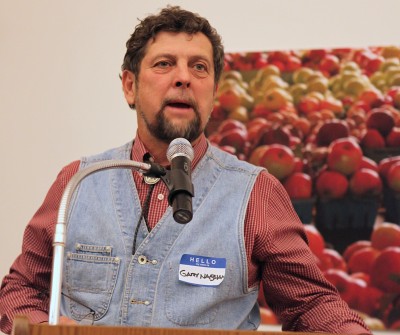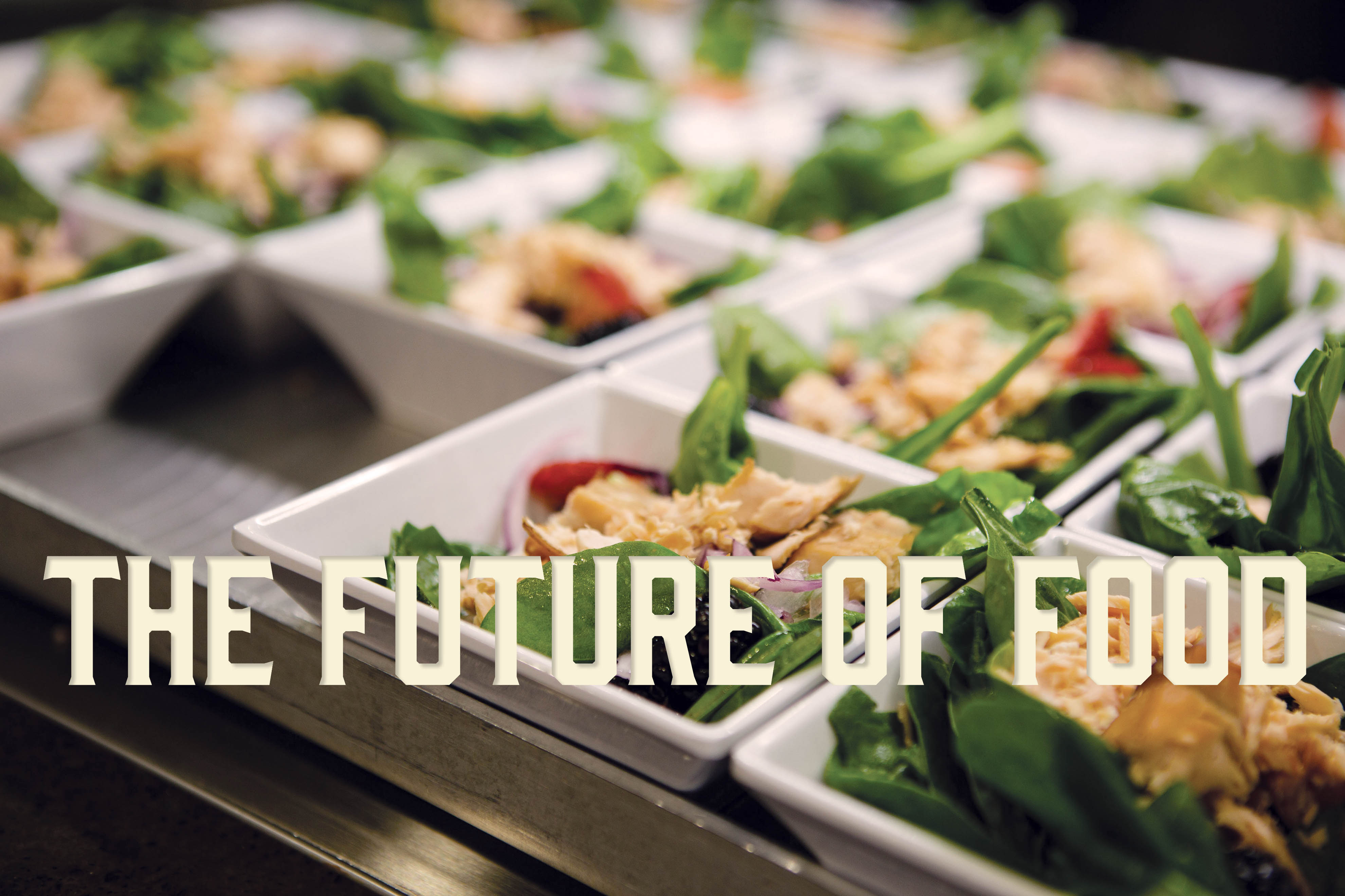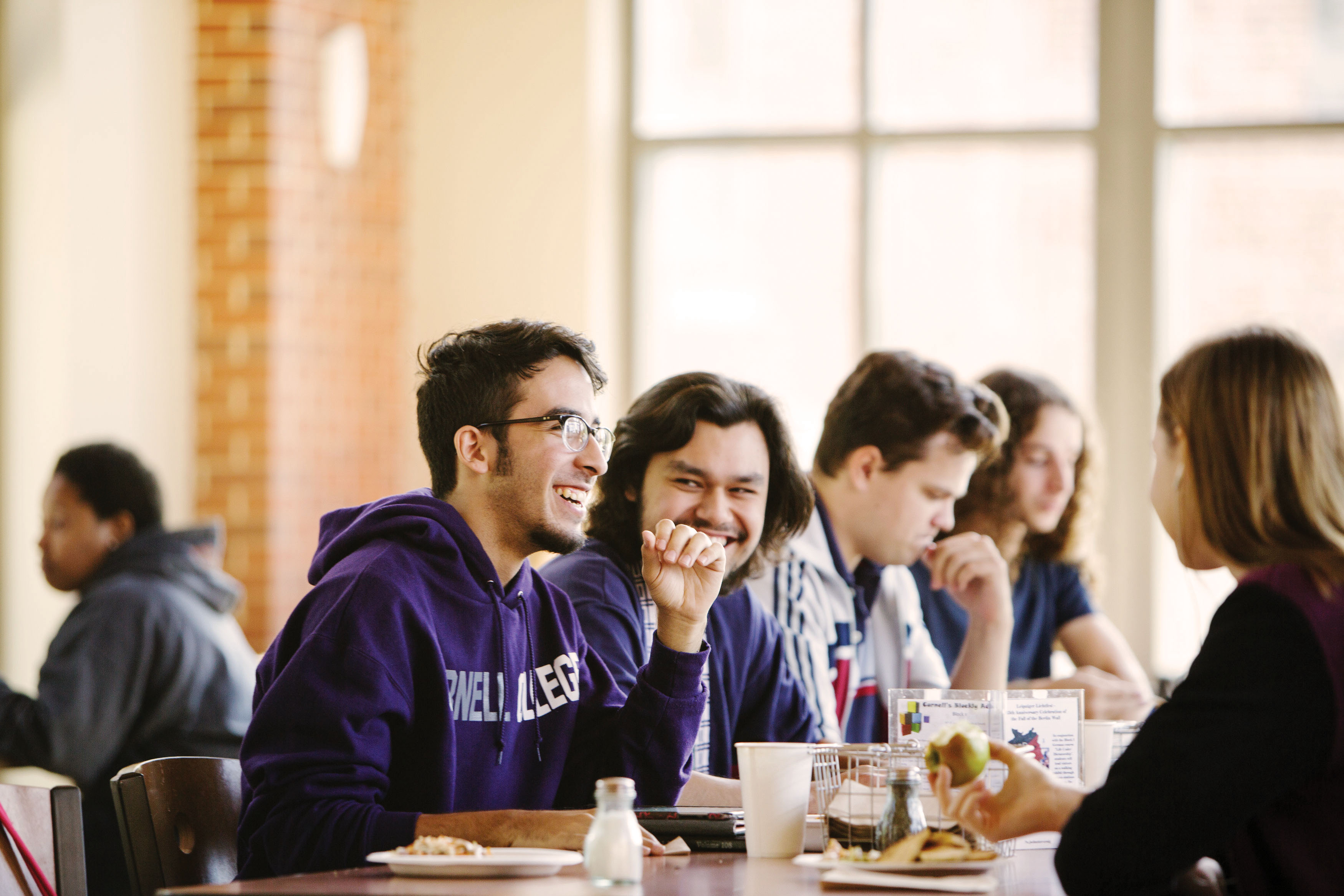The activist
Before Gary Nabhan ’73 was an internationally-known activist, before he won a MacArthur Foundation “Genius” grant, before he’d written or edited any of his more than 20 books, before the term “local food movement” was even coined, he was a Cornell College student. It was during the year and a half Nabhan spent on the Hilltop that he went to Washington, D.C., to work on the first-ever Earth Day in April 1970. It was also when he met Cornell biology professor Paul Christiansen, who Nabhan said was not only one of the best professors he ever had, but was one of the best people he’d ever known.

The people and the curriculum, along with Cornell’s location in the Midwest, got Nabhan thinking about the U.S. breadbasket in relation to global environmental issues, which in turn led him to start thinking about both sustainable agriculture and environmental studies.
“My time at Cornell set my path for me,” he said.
That path has led Nabhan to be one of the world’s foremost experts on sustainable agriculture and food justice. His website offers a thumbnail sketch of his career:
As the W.K. Kellogg Endowed Chair in Sustainable Food Systems at the University of Arizona Southwest Center, he works with students, faculty, and nonprofits to build a more just, nutritious, sustainable, and climate-resilient food shed spanning the U.S./Mexico border. He was among the earliest researchers to promote the use of native foods in preventing diabetes, especially in his role as a co-founder and researcher with Native Seeds/SEARCH. Gary is also personally engaged as an orchard-keeper, wild foods forager, and pollinator habitat restorationist working from his small farm in Patagonia, Arizona, near the Mexican border. He has helped forge “the radical center” for collaborative conservation among farmers, ranchers, indigenous peoples, and environmentalists in the West.
Nabhan has stayed connected to Iowa in various ways. He said he was heartened to see the rise in availability of grassfed Iowa pork, for example. Recently he was at a conference at Iowa State University that included field trips to see prairie replanting progress, and Daryl Smith, the founder of the Tallgrass Prairie Center at UNI, gave him a book on prairie restoration dedicated to Paul Christiansen.
Nabhan is a research scientist/writer/educator/activist, and he spends a tremendous amount of time thinking about the issues food producers face in a changing climate and how that impacts others as well. He sees three major issues.
First, climate change is going to marginalize the world’s poorest people even further, he said, unless there’s more of a focus on food justice and the creation of an equitable system where people can grow food locally and have access to the water and other resources they need. Some of Nabhan’s ideas include training more farmers and creating farms of various sizes, a commitment to growing diverse and locally-appropriate crops, and connecting emergency food relief agencies with local food producers, to help ensure people who are poor have access to fresh, locally-grown food.
Second, there’s a need to rebuild farm diversity in terms both of crops planted and of the animals that pollinate those crops, especially bees and butterflies. “Pollination isn’t just something that’s done by the wind and seed companies,” Nabhan said.
He’s been involved with numerous projects in the Southwest that have rebuilt habitat for species of bees and butterflies. Those insects are crucial to the natural process of pollination, but they also require other species in order to lay eggs and hatch larvae. Monarch butterflies, for example, lay their eggs exclusively on milkweed, and the caterpillars that hatch feed solely on milkweed. Droughts that have killed off milkweed have, in turn, endangered the Monarch. In January 2014 Nabhan wrote: “Our vision is that the return of formerly forgotten pollinators will not only curb the ongoing extinction of ecological relationships that plagues the continent today, but will also return economic health and well-being to the rural communities along the border that choose to be good stewards of such relationships.”
Finally, the United States’ rural-urban divide makes solving many of our food-related problems difficult. “They almost have completely different value systems,” Nabhan said. That makes understanding one another difficult. People who live in urban areas often have no idea where their food comes from, and might have only limited access to local food. Nor do they know anyone who grows food for a living, which further disconnects them from the food supply.
Places like Cornell College are where students from an urban background can get their first exposure to a rural setting, which can help heal that divide, Nabhan said.


